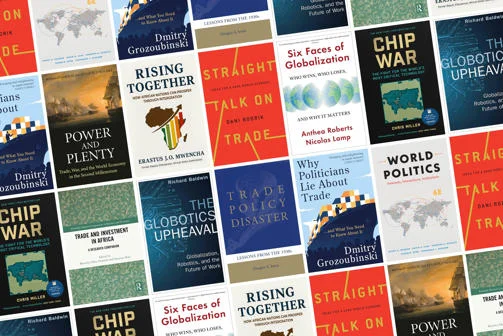Recommended reads for understanding the economy today
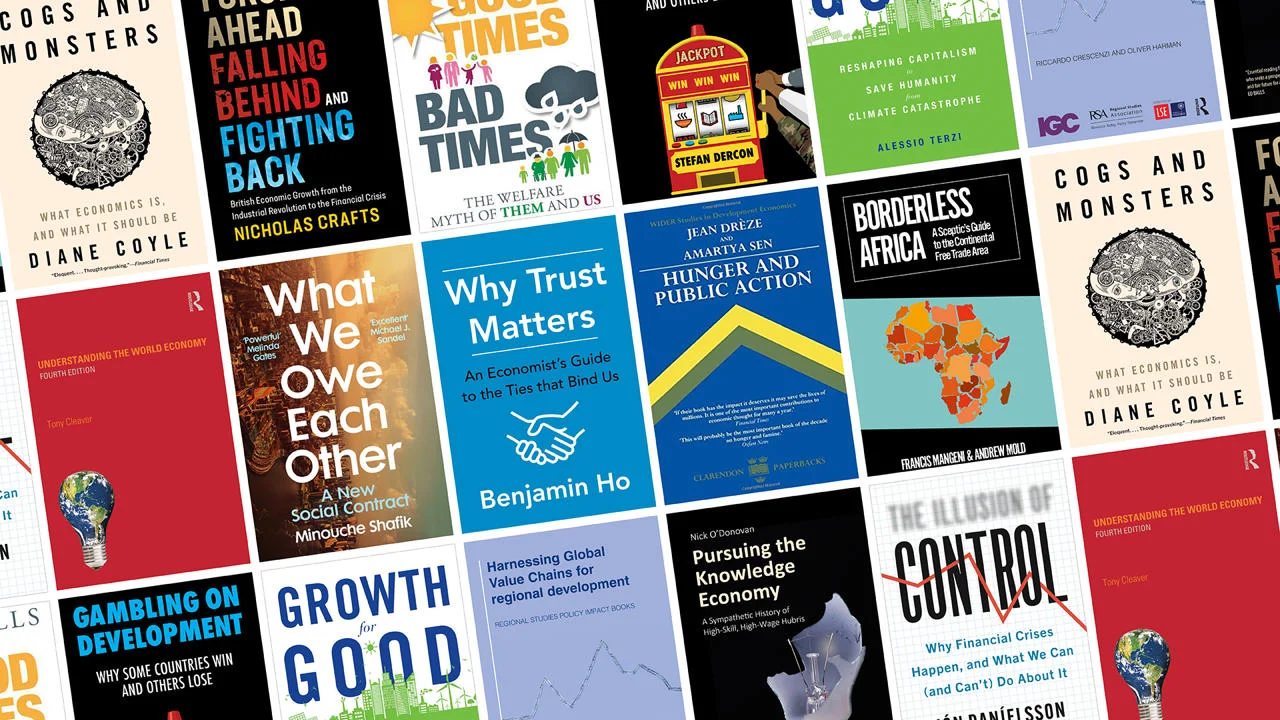
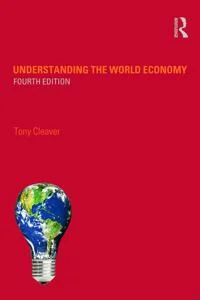
Understanding the World Economy (4th Edition). Tony Cleaver (Routledge, 2012)
‘‘I recommend Understanding the World Economy because it is very easy to read and uses nontechnical language in explaining contemporary economic issues with particular attention to an understanding of how global markets function. It is very suited for undergraduates as well as casual readers because of its use of anecdotes in explaining real economic issues.’’
Recommended by Dr Cornelia Agyenim-Boateng, Fellow in Real Estate Economics and Finance and Deputy Director MSc Real Estate Economics, Department of Geography and Environment, LSE
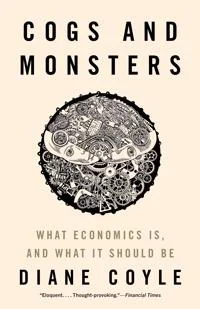
Cogs and Monsters: what economics is, and what it should be. Diane Coyle (Princeton University Press, 2021)
‘‘Diane Coyle critically examines the role of economics in analysing and shaping today’s increasingly digitised society. She sets out the strengths and limitations of mainstream economics and how the latter can be addressed, including by improving diversity in the profession. Cogs and Monsters is an inspiring read for those developing, using or seeking to understand economics in a rapidly changing world.’’
Recommended by Dr Anna Valero, Senior Policy Fellow at the Centre for Economic Performance, Deputy Director of the Programme on Innovation and Diffusion and Associate of the Grantham Research Institute, LSE
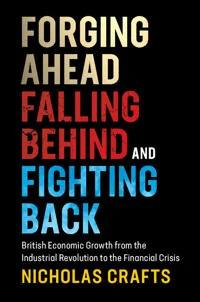
Forging Ahead, Falling Behind and Fighting Back: British economic growth from the Industrial Revolution to the Financial Crisis. Nicholas Crafts (Cambridge University Press, 2018)
‘‘In Forging Ahead, Falling Behind and Fighting Back, Nicholas Crafts explores British economic growth between the Industrial Revolution and the present, revealing the deep historical roots of the challenges facing the modern British economy.’’
Recommended by Dr Jason Lennard, Assistant Professor, Department of Economic History, LSE. Read about Dr Lennard's research in the article What can we learn from recessions throughout history?
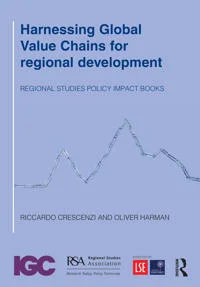
Harnessing Global Value Chains for Regional Development: how to upgrade through regional policy, FDI and trade. Riccardo Crescenzi and Oliver Harman (Routledge, 2023)
This Regional Studies Policy Impact Book by Riccardo Crescenzi and Oliver Harman brings together the latest academic evidence and public policy insights on global value chains and foreign direct investment, showing how they matter for regional economic development and policy. The book explores how regions and cities can build, embed and reshape global value chains for local enhancement.
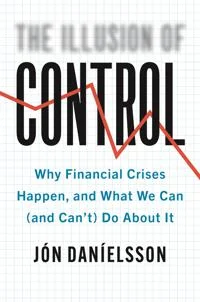
The Illusion of Control: why financial crises happen, and what we can (and can’t) do about it. Jón Daníelsson (Yale University Press, 2022)
Challenging the conventional wisdom regarding financial risk, Jón Daníelsson argues that critical risk is generated by interactions between individuals and perpetuated by their beliefs, objectives, abilities and prejudices. In The Illusion of Control he draws on lessons from past and recent crises to show that diversity is the best way to safeguard our financial system.
Read more about Dr Daníelsson's research in the article "The illusion of control: why the financial sector is more vulnerable than ever to a financial crisis
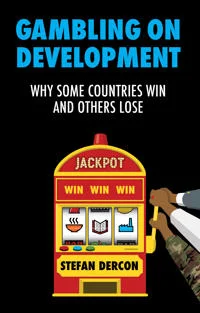
Gambling on Development: why some countries win and others lose. Stefan Dercon (Hurst, 2022)
‘‘Gambling on Development offers powerful insights on what drives development on the ground. But be warned: the country characterisation is esoteric, if not bizarre.’’
Recommended by Professor David Luke, Professor in Practice and Strategic Director, Firoz Lalji Institute for Africa, LSE. Read more about Professor Luke's research in the article Understanding African trade is key to helping its development
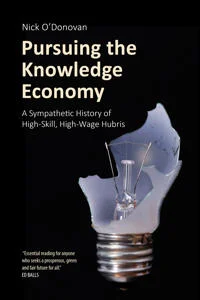
Pursuing the Knowledge Economy: a sympathetic history of high-skill, high-wage hubris. Nick O’Donovan (Agenda Publishing, 2022)
"The knowledge-driven growth agenda of the 1990s and 2000s promised good jobs, high growth and widely shared prosperity in the developed economies. This insightful and meticulously researched book makes a compelling case that the knowledge economy failed to deliver on these lofty promises. It instead exacerbated some of the defining ills of our time such as stagnating productivity, growing inequalities and the rise of populism. Pursuing the Knowledge Economy is essential reading to help understand where we are and how we got here, but also offers some hope for how we could use public policies to build fairer and more prosperous societies in the future."
Recommended by Dr David Hope, Visiting Senior Fellow, International Inequalities Institute, LSE. Read about Dr Hope's research in the article Tax cuts for the wealthy only benefit the rich: debunking trickle-down economics
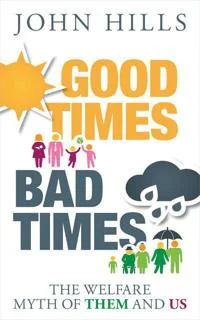
Good Times, Bad Times: the welfare myth of them and us. John Hills (Policy Press, 2014)
"John Hills shows us how the British welfare state in fact benefits most of us at different points across our life course through good times and bad. Chapter eight of Good Times, Bad Times, ‘A moving backdrop’, is particularly helpful for understanding our current economic situation, where Hills discusses different ways of thinking about the ‘fairness’ of policies at times of rapid change; and the large but often unnoticed impact of ‘do nothing’ policies that result in fiscal drag or benefit erosion."
Recommended by Dr Kate Summers, British Academy Postdoctoral Fellow, Department of Methodology, LSE
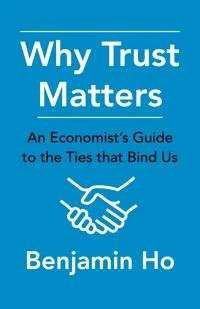
Why Trust Matters: an economist’s guide to the ties that bind us. Benjamin Ho (Columbia University Press, 2021)
‘‘Today’s academic economics is very different than the one a few decades ago when economists at best thought they could not measure feelings or perceptions or at worst thought such things were irrelevant for economics as a discipline. Why Trust Matters illustrates how one such feeling, called ‘trust’, has come to the centre stage as the driving force of various economic exchanges from FDI flows across countries to the behaviour of Uber customers. It’s a must-read, especially for those interested in behavioural economics and finance.’’
Recommended by Dr Orkun Saka, Visiting Fellow at the European Institute and Research Associate at the Systemic Risk Centre and STICERD, LSE. Read about Dr Saka's research in the article Cultural stereotypes of multinational banks: how biases spread and affect bank lending to governments

Borderless Africa: a sceptic’s guide to the continental free trade area. Francis Mangeni and Andrew Mold (Hurst, 2023)
‘‘Borderless Africa unpacks data on intra-African trade to reveal that this under-researched subject holds the clue to understanding the changing trajectory of development in Africa.’’
Recommended by Professor David Luke, Professor in Practice and Strategic Director, Firoz Lalji Institute for Africa, LSE. Read more about Professor Luke's research in the article Understanding African trade is key to helping its development

What We Owe Each Other: a new social contract. Minouche Shafik (Vintage, 2022)
Minouche Shafik examines societies across the world and demonstrates that the urgent challenges of technology, demography and climate require a major shift in priorities. What We Owe Each Other proposes a social contract for the 21st century that can provide security and opportunity.
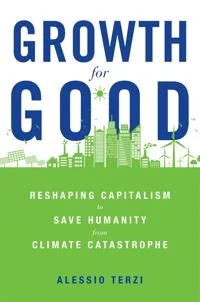
Growth for Good: reshaping capitalism to save humanity from climate catastrophe. Alessio Terzi (Harvard University Press, 2022)
‘’Constructing a compelling argument based on economics, politics and history, Alessio Terzi explains how capitalism provides the most feasible – and attractive – route to tackling the climate crisis. But successfully navigating this at pace requires a new kind of capitalism with active governments, businesses and citizens driving growth that is more inclusive, greener and healthier. In Growth for Good Terzi provides an optimistic and evidence-based message to guide policy during this decisive decade and beyond.’’
Recommended by Dr Anna Valero, Senior Policy Fellow at the Centre for Economic Performance, Deputy Director of the Programme on Innovation and Diffusion and Associate of the Grantham Research Institute, LSE
Thanks to the LSE staff who helped with putting together this reading list, which was compiled by Dr Rosemary Deller, Managing Editor of LSE Review of Books.
Download a PDF version of this article


